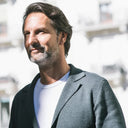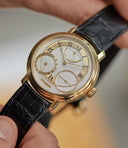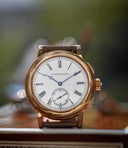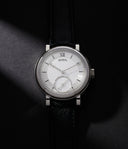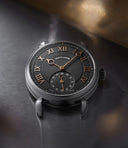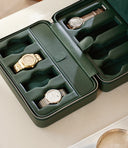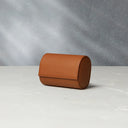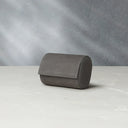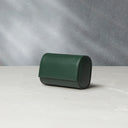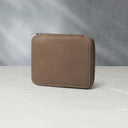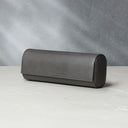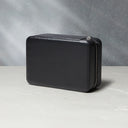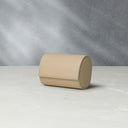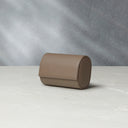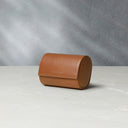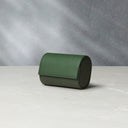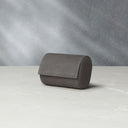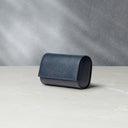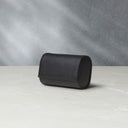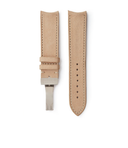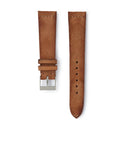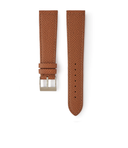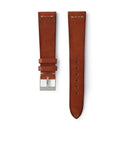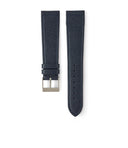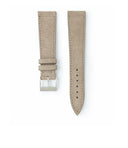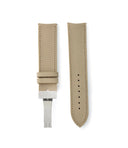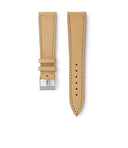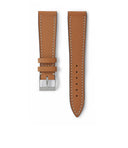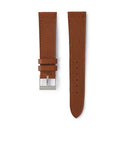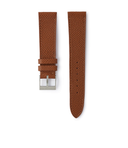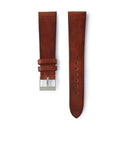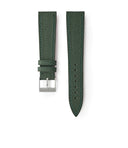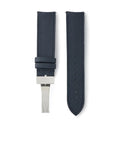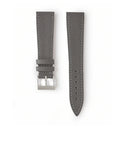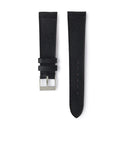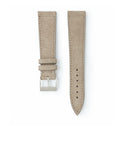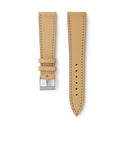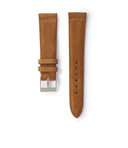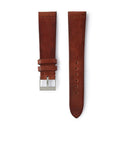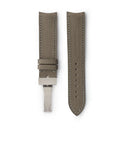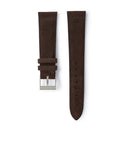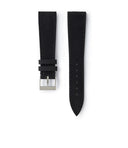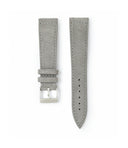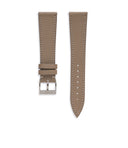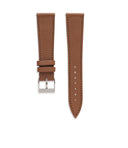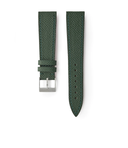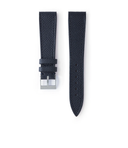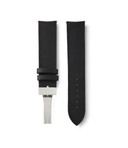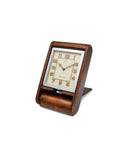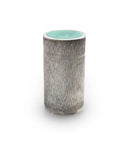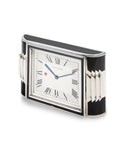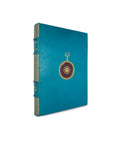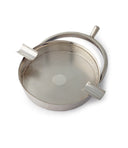Interview: Greg Pons
Watch journalism has experienced something of a rapid growth over the past four to five years, with new websites and publications catering to a thirst amongst collectors for fresh stories and perspectives on all things horology. However, it isn't always positive, as this has encouraged more and more "press release" content, that many seem to be growing tired of.
One trade journalist who many of our readers won't be familiar with (he only writes in French), takes the polar-opposite approach - Grégory Pons. Greg has a famously blunt style of writing which has achieved him a great many fans, and dare we say it, a few enemies too. In many ways, he's the original watch-provocateur, speaking truth to power, with no advertising obligations and often upsetting his fair share of brands. We decided to have a chat with Mr. Pons about his entry into the industry, and to get to the bottom of what he thinks is going wrong.
So, we ordinarily like to ask our interviewees to first explain how they became interested in watches, but with you we would like to go one step back and ask how it is that you became a journalist?
I didn’t really become a journalist, I was always a journalist. Even at the age of twelve, I was reading newspapers and writing small stories in a comic-strip style format for myself; I was always in this state of writing story-after-story.
How did that develop?
Well, when I was fifteen, I asked myself what I might like to do in life and the natural answer to this was that I wanted to become a journalist. It wasn’t particularly easy, because no one in my family had been one before, so there wasn’t someone readily available to advise me on how to go about it. I had to find the right connections and find the right paths with my instincts, but becoming a journalist was never really a question, because I felt in my heart that I had always been one.
And at what point did you have your first article published?
My first piece was published at around the age of eighteen, and I've never looked back since.
What was it, about it, that you found so gripping?
It was the storytelling; I love telling stories, meeting people, uncovering things. I have been very fortunate, because two of my great passions wound-up merging together, which enables me to do one hundred percent of what I love and still remain independent from brands.
Are there other areas where you feel you could retain this independence of voice?
No, I don’t think there are any other subjects that I could find this kind of liberty. I like watches as objects, watch people and the industry of watches, but it’s true that I know how to do something else, but find more pleasure in pursuing something which is a combination of personal know-how and passion. This is why I find myself writing about watches.

We certainly value the principles of independence here…
Absolutely, and I understand your taste for independence, but can one remain independent when one wants to sell watches in the face of giants like Mr. Porter or Amazon, for the less luxurious offerings?
We feel that the answer to this is to remain niche and work very hard at what you do. However, the journalist in you is flipping this around, so allow us to ask this: You’ve spoken in the past about your career with the military and how you may have cheated on an eye test to gain admission into the French Special Forces, is that true?
Ah, this was during an interview with Peter Speake-Marin. It’s something that I don’t usually talk about but what I will say is that it’s true that I am not physically suited to being deployed as front-line soldier.
So, how did you do it?
I learned the eye test chart by heart… [Laughs].
[Laughs] Wow…
These days it would not be possible because there are other charts, but at this time, there was just one. It’s the behaviour of a journalist, when one closes the door to a journalist, they pass through the window. When one closes the window, they pass through the basement. It’s like that [Laughs].
There seems to be a great deal of determination in everything that you do. Is it fair to say that, as someone who has served in the parachute regiment, you're not tolerant of people who waste your time or attempt to mislead you?
Easily Intimidated? No. When I give myself an objective, I have the tendency to follow through with it. If my first attempt doesn’t work, I try to figure out some other angle to make it work. If that angle doesn’t work, I try another and if that doesn’t work, then it’s not such a big deal.
It seems almost to be a regimented and militaristic approach…
It may seem that way, but it isn’t a trait that I would associate with the military. I would say that it’s a deep-seated personality trait, and that’s all. I don’t much like it when people bore me, I like to do things my own way, at my own rhythm and that’s the main reason why I didn’t pursue a career with the big newspapers. I worked with Figaro and Liberation for a short period of time, but I could never stay long because there are far too many political barriers to navigate. Take this interview for instance, I’m not going to ask myself whether it’s politically right or not to do it, am I?
Of course not. So this approach to life, does it translate into other aspects of your life?
Yes, of course, when I was roughly ten years old, I spent many years in a boarding school which was very religious, and I swore to myself that while I was being given orders, I would only obey them because I had to. This was something that I decided that I would never repeat in my life.
That’s an interesting life lesson to have learned at only ten years old …
Definitely, and it's stuck with me ever since. I wound-up in that place right after returning from Africa, where I was raised, which is a place where one has total liberty. On top of this, it was my first winter ever; there was snow everywhere!
Quite a shock to the system…
It was up in the mountains in the South of France, so, imagine someone who has lived in Africa ending up in this wintery situation with priests who stood for a religion that I didn’t particularly like. So that’s why I decided to stop working with the mainstream press and why I decided to stop producing watch supplements; it no longer corresponded with what I felt like doing.

So, it would seem that you aren’t fond of religion at all?
Not so much, we had to go to mass every day at seven o’clock in the morning, but I managed to figure out one positive aspect, which was that if you went to mass even earlier at six-thirty a.m. you had the right to have a croissant and milk for your breakfast [laughs].
[Laughs] Your method of always finding a way started very early then…
It was at this moment that I understood what the luxury industry was about [Laughs]!
On a separate note, you have quite a fierce reputation in the watch industry for being very direct and honest with your opinions. Do you feel that the media side of the watch industry has become too keen to please?
Well, when you depend on someone’s publicity, you can’t say what you want about them. This is why I have no publicity whatsoever. Zero.
You have an interesting business model, which is based around subscriptions where people pay around two hundred and fifty euros a year?
Yes, two hundred and fifty.
Is it ever a struggle?
It’s a risk, and I don’t believe that anyone else could do it. I believe that I am the only person in the world doing this; making people pay for watch-related content. I’m not entirely sure why it worked in my case, but people quickly became aware of my freedom of speech and appreciated it. They are aware of my positive and negative qualities, they know that I like certain people and dislike others, but fundamentally I’m very transparent with my readers. When I like something I say it, when I don’t like something I say it. It runs through the filter of my own personal subjectivity, but it’s relatively clear to decipher.
There are a number of content producers who seem to be struggling at the moment with remaining impartial, whether it be in reality or the perception of the audience…
It’s definitely true, and I think that's the reason people enjoy reading my work because with other journalists who discuss watches, the audience is thinking, “Yeah, but these guys are backed up by advertisements and are in the pocket of the brand.” It’s difficult to know what information is trustworthy and not.
Very true…
Many of these journalists don’t have a precise idea of what the basic structure of an article should be, or what information is required for it to be comprehensive and informative. Everyone is aware that I don’t like bloggers, but it’s not because I don’t like the bloggers themselves, it’s that I don’t appreciate people who pass themselves off as content producers, when they are in fact just publicity agents for brands.

Just to briefly touch on something we spoke about earlier, what was it that made you focus solely on watch journalism?
So, I was very passionate about a few topics like archaeology, wine and other things, but when one is passionate about watches, one speaks with friends more and more. There is a lot more to learn in the horological world, even with things as simple as asking someone why they are wearing a particular watch on any given day; it’s not all technical. So I wrote one article on watches, then two, three and four, then you ask yourself, why don’t I just write another, and another. Little by little you meet more and more brands and you get invited to more and more things. I eventually got to a crossroads and asked myself whether I should continue writing a little about everything, or if I should pour myself 100% into watches. I asked myself what was missing from the sector and that was what lead to the invention of the newsletter, Business Montres.
What do you see as the bigger challenges for the industry going forwards?
I wonder how we will go about promoting and popularising watches to the new generations; how do we make watches and watch journalism appeal to them during a new era.
It’s certainly a very large challenge…
I don’t believe that e-commerce is changing the market, e-commerce is the market today. These days, it isn’t a problem to sell an item for one thousand, ten thousand, one hundred thousand or even a million online. The other day, I was looking at an Aston Martin which was sold for eight hundred thousand on an e-commerce site; the days of e-commerce being only for little bracelets and the like are over. The biggest problem with the watch industry is in its work procedures, routines and institutions inability to adapt quickly. Unless these issues are addressed quickly, it will die.
By the way, what are you wearing on your wrist today?
I am wearing a Triton, do you know these guys?
The French brand that recently got relaunched?
It’s a nice brand run by a young man who makes quality watches. He ensures that every aspect of the watch is well made, but this is part of the problem for him as he doesn’t understand the marketing side of things so well. He sells these at five thousand francs, which is the price of a Rolex; unfortunately people prefer Rolex to Triton. If they were marked at three thousand francs, I think he would have sold many more by now.
Any final thoughts?
Yes, I think that watch journalists have been too involved for too long, and we’ve forgotten the naïve and passionate amateurs we once were. We need to get out of this bubble and return to the level of consumer who is going to buy their first or even second watch. This is true of many industries which involve vintage or collectible items. We have a generation of millennials who are arriving on the market, who were never around during the watch bubble. Information is much more readily available these days, so these consumers can become very quickly informed, but how we captivate their interest and passion is another story. The challenge for the press today is more about how the available information is organised, and most watch magazines haven’t properly understood this. They have transcribed press releases for too long and most of them have or will go out of business.
To find out more, please visit Business Montres by clicking here.














